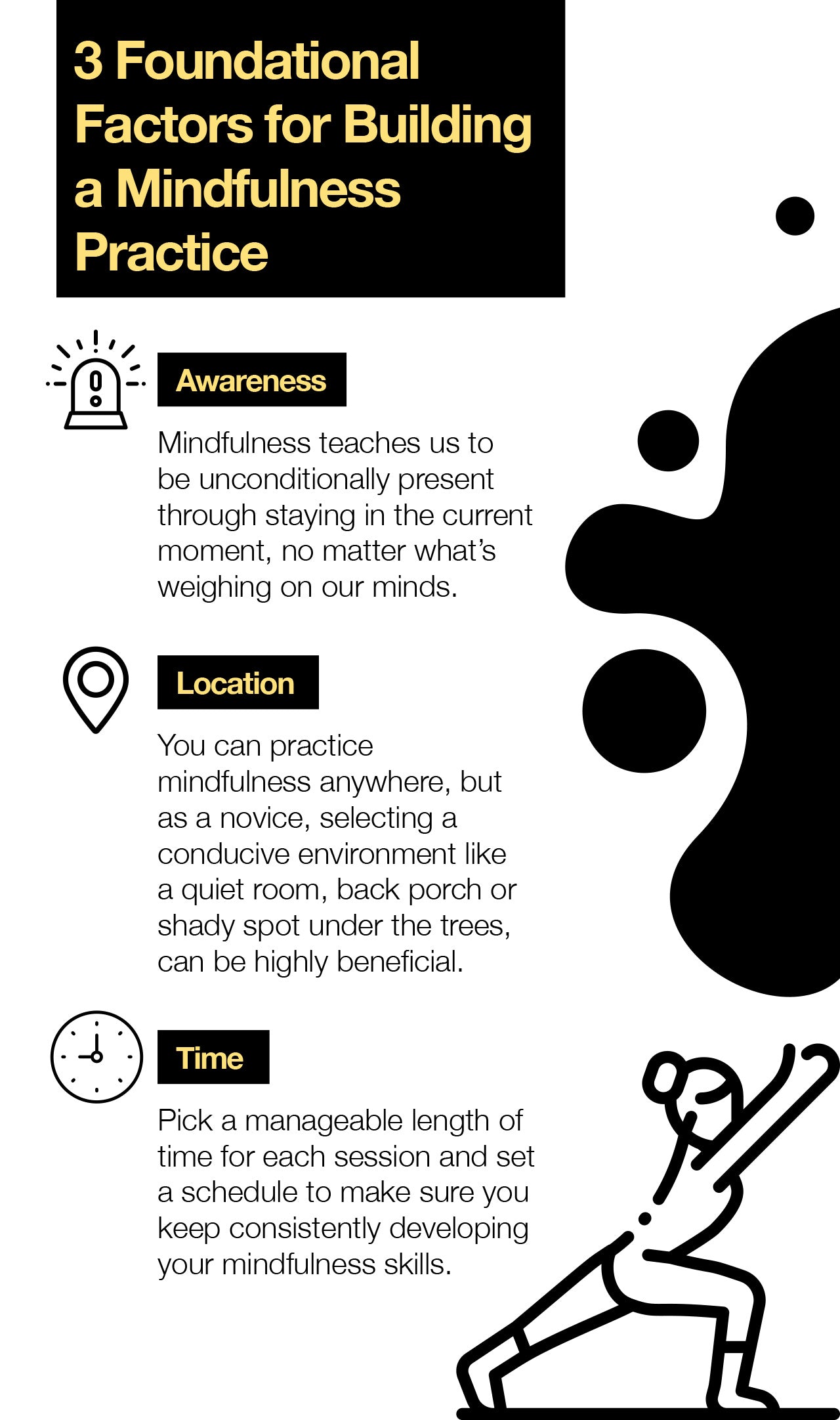Can Meditation for Anxiety and Depression Outperform Prescription Drugs?
 By: by Amino Science
By: by Amino Science

Anxiety, depression, and related mental and physical illnesses such as post-traumatic stress disorder (PTSD), sleep disorders, migraines, and back pain cost the U.S. approximately $210 billion dollars each year, according to a study published in the Journal of Clinical Psychiatry. With neither the total annual cost nor the overall number of diagnoses slowing down, it’s no exaggeration to state that depression and anxiety have become epidemics. The latest research shows that for every person who took an antidepressant in 1987, more than five people today have been prescribed a pharmaceutical treatment to help them better cope with depression, anxiety, and related mental illnesses. While antidepressants can be a valuable resource, these pills do not always deliver the results people hope for and they can come with serious, even intolerable, side effects. That's why it's important to raise awareness about proven alternative treatments, such as meditation for anxiety and depression.
A growing body of evidence indicates that meditation can be an effective management tool for both anxiety and depression. A systematic review and meta-analysis conducted by a team of researchers from Johns Hopkins University in Baltimore, Maryland found that meditation techniques led to demonstrable reductions to "multiple negative dimensions" of depression and anxiety—in other words, participants who meditated regularly experienced fewer and less severe symptoms.
Read on to learn more about the science behind using meditation to relieve anxiety and depression.
Eastern vs. Western Approaches to Mental Wellness
Eastern medical disciplines such as Ayurveda and Traditional Chinese Medicine (TCM) have taken wholly divergent approaches to medicine than the Western philosophy practiced at hospitals in the United States. For instance, while Western doctors focus on identifying the presence or absence of disease and then treating disease with pharmaceuticals designed either to reverse or mask a condition, Eastern medicine has a reputation for taking a more holistic approach to wellness. This includes monitoring the interplay of various elements, taking into consideration not only a person’s physiology and pathology but also aspects of their natural environment.
Meditation and other mindfulness modalities remain centerpieces in the Eastern wellness practitioner’s toolbox, especially for treating anxiety and depression. And the Western medical community is taking notice and following suit.
Doctors Agree: Meditation Can Encourage Mental Wellness
Findings shared in an article from Psychology Today indicate that approximately 6.3 million Americans, or roughly 1 in 30, have been referred by doctors to practice activities like meditation. It's becoming more and more common for health care professionals to recommend meditation and other activities meant to cultivate stress reduction and inner peace as mind-body therapy.
Before we explain how meditation can be used specifically to treat anxiety and depression, it's worth briefly acknowledging some of the ways meditation can increase your general well-being, no matter what your particular health situation may be.
Daily meditation has been shown to optimize your health by:
- Training you to see the connection between your mind and body, a prerequisite for effectively addressing many health conditions
- Lowering your blood pressure
- Boosting your immune system
- Bringing your subconscious issues and worries to the surface, thus allowing you to devise novel solutions for dealing with them
- Increasing your happiness and sense of self

How Meditation Can Rewire Your Brain
For centuries, meditation has been used to encourage individuals to let go of worries and nagging thoughts in order to exist more completely in the present moment and achieve a state of deep relaxation. And now, thanks to modern neuroimaging techniques, scientists have been able to show that the signature benefits of meditation stem from changes to the structure and function of your brain.
In an article titled "Medication and Psychiatry," Dr. Michael McGee of the McLean Harvard Medical School stated that imaging studies have shown regular meditation sessions result in "increased gray matter, particularly in the prefrontal cortex, the right anterior insula, and the putamen, areas associated with attention, interoception, and sensory processing, with differences correlating with meditation experience, suggesting neural plasticity with meditation." In other words, meditation helps your brain become more skillful in the ways it adapts to stress, processes emotions, and filters information and sensation.
A meta-analysis published in the Journal of Consulting and Clinical Psychology looked at the results of 39 studies which had enrolled a combined total of 1,140 participants and used mindfulness techniques to treat a variety of conditions, including:
- Generalized anxiety disorder
- Depression
- Chronic fatigue syndrome
- Panic attacks
- Fibromyalgia
- Chronic pain
- Social anxiety disorder
- Attention-deficit hyperactivity disorder
- Binge eating disorder
- Bipolar disorder
- Insomnia
- Other medical conditions diabetes, heart disease, traumatic brain injury, and cancer
A number of studies looked at the efficacy of meditation at targeting more than one of the conditions listed above. All in all, the researchers found that meditation proved to be a robust treatment modality.
Using Meditation to Ease Anxiety and Depression
Though anxiety and depression are separate mental disorders, they are intimately intertwined. Stress and anxiety are two of the most significant triggers of depression, according to a resource shared by Harvard Health Publishing, and practicing meditation offers a means of changing the way you react to those feelings.
"Meditation trains the brain to achieve sustained focus," said Dr. John W. Denniger director of research at the Benson-Henry Institute for Mind Body Medicine at Harvard-affiliated Massachusetts General Hospital, "and to return to that focus when negative thinking, emotions, and physical sensations intrude," a common occurrence for individuals with anxiety and depression.
As touched on previously, meditation also results in physical changes to certain brain areas, including ones linked to depression, like the medial prefrontal cortex (mPFC) and the amygdala. Scientists have found that individuals with depression have unusually high levels of activity in the mPFC, a brain region responsible for processing information about the self, which can include replaying past mistakes and catastrophizing potential future failures. And the amygdala regulates the flight-or-flight response, directing the adrenal glands to release cortisol, a stress hormone, in response to perceived threats. The mPFC and amygdala can create a negative feedback loop that increases symptoms of depression, overreacting to stressors and creating cortisol spikes in response to fabricated dangers. Studies show that meditation can sever that loop, allowing you to respond more calmly to stresses and worries when they arise.
As you can likely now intuit, meditation has proved to be incredibly useful for the treatment of anxiety-based disorders. Dr. Elizabeth Hoge, a psychiatrist at the Center for Anxiety and Traumatic Stress Disorders at Massachusetts General Hospital and an assistant professor of psychiatry at Harvard Medical School, cites mindfulness meditation as being uniquely beneficial.
According to Hoge, “People with anxiety have a problem dealing with distracting thoughts that have too much power (and) they can’t distinguish between a problem-solving thought and a nagging worry that has no benefit.”
She goes on to explain that mindfulness meditation can help people recognize the moments when worrying serves no purpose while simultaneously training them to experience worrying thoughts differently. In short, meditation allows individuals with anxiety to see their unproductive thoughts for exactly what they are, which in turn helps to loosen the destructive hold they can establish.
In 2014, Hoge published a review of relevant available research on the benefits of meditation in JAMA Internal Medicine Review. Here are some of the key points from that review:
- Medical research supported the conclusion that yoga and meditation (two practices related to mindfulness) activate the body’s natural mechanisms for managing stressors such as chronic anxiety.
- The effectiveness of mindfulness programs that use meditation in managing stress can be explained by physiological changes that take place in both the brain and the body.
- These findings on the value of mindfulness in focusing attention and reducing distracting thoughts have clear clinical implications for mental health professionals and how they treat their patients.
Here are four proven, science-backed ways that meditation decreases depression and relives anxiety.
4 Ways Meditation Decreases Depression and Relieves Anxiety
High-quality research reveals that meditation can work as well as the top prescription drugs when it comes to treating anxiety and depression. It appears that they can reverse damage associated with these conditions while making your brain less prone to future flare-ups.
Some standard treatments for depression and anxiety relief include prescription medications, therapy, or a combination of the two. While many find medications to be an invaluable resource, others do not experience significant relief or encounter side effects severe enough that they must discontinue pharmaceutical treatment. Similarly, therapy can lead to breakthroughs and help with long-term management, but it's also time-consuming and can be quite costly.
Meditation, an affordable, accessible, side-effect free way to manage anxiety and depression, can be just as effective as medication and therapy, according to the systematic review and and meta-analysis conducted by Johns Hopkins researchers cited earlier.
Here are four ways researchers have found that meditation brings relief for those with depression and anxiety.
1. Change the Way Your Brain Processes Negative Thoughts
Negative thought patterns play a major role in the development and manifestation of anxiety, depression, and other mood disorders. Everyone has negative thoughts; in fact, of the 50,000 thoughts the average person has each day, more than half can be negative. But people with mood disorders essentially get stuck on these thoughts, which can feel both highly distressing and uncontrollable.
The longer this goes on, the more entrenched negative thought patterns become. Repetition reinforces neural pathways, making it incredibly challenging to break habits like negative self-talk.
The good news is, your brain possesses a trait called neuroplasticity, which you can harness to form new neural pathways. When it comes to negative thoughts, this means learning to acknowledge the thought and let it go, instead of allowing it to draw you into a spiral of worry.
Meditation has been shown to be a wonderfully effective way of interrupting racing, cyclical worries and catastrophizing—what experts call rumination. A study published in Cognitive Therapy and Research found that an 8-week course on mindfulness-based stress reduction on its own led to demonstrable reductions to rumination.
2. Balance Levels of Key Neurotransmitters
Though no one knows exactly what causes mood disorders like depression and anxiety, experts do know that neurotransmitters—chemical messengers used by the nervous system to carry signals between brain cells, or between brain cells and muscle cells—play a role.
When the balance of these vital chemicals becomes skewed, it changes the way your brain and body respond to stress. Studies show that a regular meditation practice can reestablish healthy levels of neurotransmitters.
According to an article published in Brain Stimulation, meditation influences both the production and delivery of gamma-aminobutyric acid (GABA), a neurotransmitter known to increase feelings of happiness and relaxation.
Meditation can also increase levels of serotonin, another hormone linked to happiness. Low levels of serotonin contribute to both depression and anxiety.
Furthermore, meditation lowers cortisol levels. Excessive amounts of cortisol contribute to anxiety, depression, and other mental health conditions.
3. Increase Blood Flow to the Brain
In order to function, your brain requires a steady supply of blood containing:
- Neurotransmitters
- Hormones
- Oxygen
- Glucose
- Vitamins
- Minerals
- Amino acids
- Other nutrients
When blood circulates from the brain back into the body, it carries with it metabolic waste, carbon dioxide, and toxins.
A good supply of blood also keeps your brain hydrated, prevents dangerous temperature fluctuations, and ensures pH balance.
For optimal mental health, you must maximize blood flow to the brain, and meditation can do that. A team of researchers from the Hospital of the University of Pennsylvania looked at how both verbal meditation practiced by Franciscan nuns as well as meditative visualization practiced by Buddhist meditators influenced blood flow to the brain. Scans showed increased blood flow to the entire brain, with 7.1% increased blood flow to the prefrontal cortex, 6.8% increased blood flow to the parietal lobes, and 9.0% increased blood flow to the inferior frontal lobes.
You can also increase blood flow to the brain with a side-effect-free essential amino acid supplement proven to boost heart health. Learn more here.
4. Lower Inflammation Levels in the Brain
Over the last decade, scientists have identified inflammation as an important factor in a several mood disorders, per a review published in Progress in Neuro-Psychopharmacology & Biological Psychiatry. The review also notes that cytokines, pro-inflammatory chemical messengers, appear to be involved in the inflammation linked to mood disorders.
Compelling evidence indicates that meditation can lower levels of inflammation. Better still, it seems this effect sets in quite rapidly. A study co-funded by the National Center for Complementary and Integrative Health (NCCAM) found that a single 8-hour meditation session led to measurable decreases to the expression of genes connected to inflammation. Participants also performed better when given a stress test.

Now that you're armed with solid empirical evidence that meditation techniques work to combat anxiety and depression, you might be curious how variations like mindfulness meditation work.
Expert Advice on Beginning a Mindfulness Meditation Practice
Mindfulness meditation—which can be done sitting quietly or while you’re doing everyday tasks like watering your garden— is characterized by Mosby's Medical Dictionary as “a technique of meditation in which distracting thoughts and feelings are not ignored but acknowledged and observed (non-judgmentally) as they arise to create a detachment from them and gain insight and awareness.”
Standing in sharp contrast to panicked thoughts that scream “something’s wrong with me, surely I need medication,” this approach to wellness focuses on long-term sustainability.
Whenever you set out to master a new skill, you may encounter a moment of overwhelm as you face down the many elements that will affect your success. In the beginning, try focusing on these three foundational factors.
- Awareness: Mindfulness differs from a number of treatment modalities in that the aim is not to change you, but rather to re-introduce you to the self that can get lost in the daily dash for success and security. Mindfulness teaches us to be unconditionally present through staying in the current moment, no matter what’s weighing on our minds. As such, it trains us to affirm life (no matter what its foibles may be).
- Location: You can practice mindfulness anywhere, but as a novice, selecting a conducive environment can make all the difference. Once you’ve committed to becoming more mindful, choose a location that can bring it about. We suggest a quiet room, back porch, or shady spot under the trees.
- Time: Time management is critical—especially in the beginning—when you’re still sharpening your mindfulness honing abilities. Pick a manageable length of time for each session and set a schedule to make sure you consistently develop your mindfulness skills.

When It Comes to Mindfulness, What Constitutes Success?
As you continue with your mindfulness practice, you may begin to wonder: what constitutes success? Is it the total eradication of depressing thoughts or anxious moments? As life provides ample opportunities for these, probably not. However, mindfulness meditation can provide you the clarity and calmness you crave, while also serving as a viable long-term solution to issues like anxiety and depression. So why not give it a chance? You just might have nothing to lose but the overwhelming thoughts.

Up to 25% off Amino
Shop NowTAGS: natural cures
Join the Community
Comments (0)
Most Craveable Recipes




 833-264-6620
833-264-6620



















